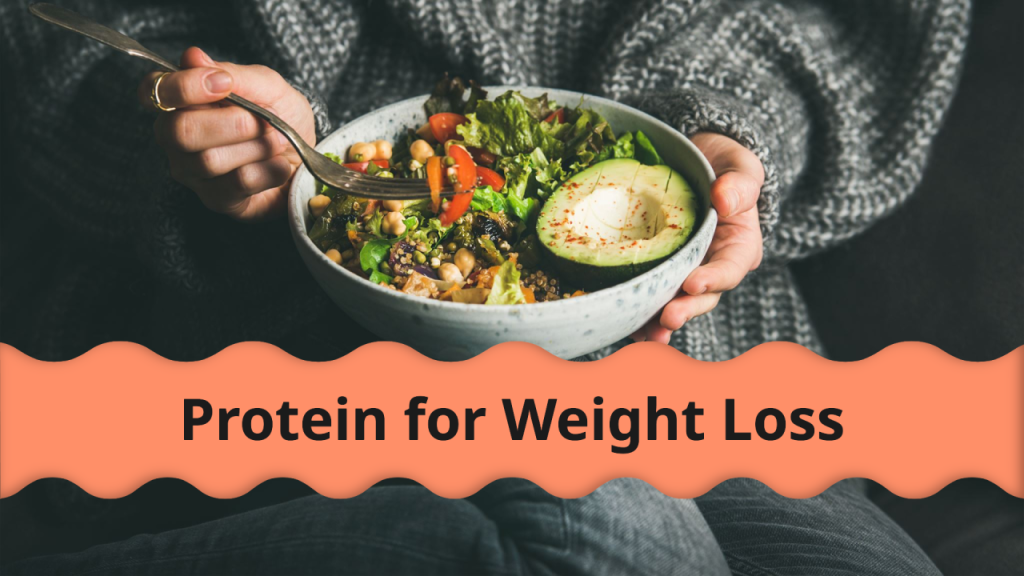One Essential Ingredient That Is Essential To Many Body Processes Is Protein. Particularly When It Comes To Losing Weight, Protein Can Be Helpful. This Tutorial Examines The Ways That Eating Extra Protein Can Help You Lose Weight And Enhance Your General Health.
Understanding Protein And Its Functions:
What Is Protein?
Along With Lipids And Carbs, Protein Is One Of The Three Macronutrients That The Body Needs. Amino Acids, The Building Blocks Of Muscles, Hormones, Enzymes, And Other Body Activities, Make Up Its Composition.
How Protein Assists In Losing Weight:
1. Boosts Metabolism: Compared To Fats And Carbs, Protein Has A Larger Thermic Effect. This Implies That When The Body Breaks Down And Processes Protein, It Expels More Calories. Eating Foods High In Protein Can Raise Your Metabolic Rate And Aid In Calorie Burning.
2. Encourages Satiety: Research Indicates That Protein Helps People Feel Fuller And Eat Less. This Is Because It Has The Power To Affect Hunger-Related Hormones Including Peptide YY And Ghrelin. You Are Less Prone To Overeat And Snack In Between Meals If You Feel Fuller For Longer.
3. Preserves Lean Muscle Mass: Losing Muscle Mass Can Occur Concurrently With Weight Loss. Maintaining Muscle Mass Is Crucial For A Healthy Metabolism And Overall Body Composition. Protein Aids In This Process.
4. Lessens Cravings: Research Has Indicated That Eating A High-Protein Diet Helps Lessen Cravings And The Urge To Nibble On Bad Foods. Protein Can Assist You In Making Better Dietary Decisions By Lowering Appetite And Stabilizing Blood Sugar Levels.
How To Include Protein In Your Diet:
Selecting Sources Of Protein:
1. Lean Meats: Lean Turkey, Beef, And Pig Cuts, As Well As Chicken Breast, Are Great Sources Of Protein. They Offer Minimum Fat Content Together With High-Quality Protein.
2. Fish And Seafood: High In Protein And Good Fats Include Fish Like Shrimp, Tuna, And Salmon. They Can Help With Weight Loss And Are Low In Calories.
3. Dairy Products: Milk, Greek Yogurt, And Cottage Cheese Are Healthy Protein Sources. To Cut Back On Calories, Choose Options That Are Low In Fat Or Fat Free.
4. Plant-Based Proteins: Lentils, Beans, Chickpeas, Tofu, And Tempeh Are Good Sources Of Protein For People Who Follow A Vegetarian Or Vegan Diet. Nuts And Seeds Also Add To The Amount Of Protein Consumed.
Eggs: An Excellent And Flexible Source Of Protein Are Eggs. They Can Be Added To A Variety Of Meals And Provide Important Amino Acids.
Ideas For Protein-Rich Meals:
1. Breakfast: Have A High-Protein Breakfast To Start The Day. Think About Dishes Like Scrambled Eggs With Vegetables Or Greek Yogurt With Fruit And Almonds.
2. For Lunch:Go For A Salad That Combines Grilled Chicken Or Tofu With A Blend Of Veggies And A Mild Vinaigrette. Another Option Is To Try A Quinoa Bowl With Avocado And Beans.
3. Dinner: Savor A Dish Of Stir-Fried Lean Beef And An Assortment Of Vibrant Vegetables, Or Bake Salmon With Steamed Veggies.
4. Snacks: A Small Portion Of Cottage Cheese With Fruit, A Handful Of Nuts, Or Protein Bars Are All Excellent Choices For Snacks.
Protein And Other Nutrient Balance:
A Healthy Diet Should Contain All Three Macronutrients—Protein, Fats, And Carbohydrates—As Well As Vitamins And Minerals, Even Though Protein Is Necessary. For A Well-Rounded Dietary Intake, Combine Foods High In Protein With Whole Grains And Healthy Fats.
1. Carbohydrates: Include Fruits, Vegetables, And Whole Grains To Supply Energy And Vital Elements. Protein Is Enhanced By Carbohydrates Since They Provide The Energy Needed For Exercise And Metabolic Functions.
2. Fats: Consume A Diet Rich In Heart-Healthy Fats From Foods Like Avocados, Nuts, Seeds, And Olive Oil. For The Body To Produce Hormones And For General Health, Fats Are Essential.
3. Vitamins And Minerals: To Ensure You Are Getting The Vitamins And Minerals You Need, Make Sure You Are Eating A Variety Of Fruits And Vegetables. The General Health And Wellbeing Are Supported By These Micronutrients.
Advice On How To Use Protein To Lose Weight Effectively:
1. Make A Meal Plan: Include Protein At Each Meal And Snack. Making Healthy Decisions And Ensuring You Get Enough Protein Are Made Easier When You Plan Ahead.
2. Pay Attention To Portion Sizes: Although Too Much Protein Is Good For You, Eating Too Much Of It Can Result In Consuming Too Many Calories. In Order To Keep Your Diet Balanced, Pay Attention To Portion Proportions.
3. Remain Hydrated: Consuming Copious Amounts Of Water Aids With Protein Digestion And Absorption, As Well As Metabolism.
4. Combine With Exercise: A High-Protein Diet Should Be Combined With Frequent Exercise For The Best Weight Loss Outcomes. Exercise Contributes To The Growth And Maintenance Of Muscle Mass, Which Increases The Advantages Of Protein.
5. Seek Professional Advice: You Should Think About Seeking Advice From A Trained Dietitian Or Nutritionist If You Have Certain Dietary Demands Or Medical Issues. They Are Able To Offer Tailored Advice According To Your Particular Requirements.
Summary:
Increasing The Amount Of Protein In Your Diet Can Be A Very Effective Weight Loss Strategy. Lean Muscle Mass Is Preserved, Cravings Are Decreased, Metabolism Is Increased, And Satiety Is Promoted—All Of Which Help To Bolster A Healthy And Successful Weight Loss Strategy. For Optimal Effects, Select A Range Of Protein Sources, Ensure That Your Diet Is Well-Balanced With Other Necessary Nutrients, And Complement Your Efforts With Regular Exercise. Recall That Long-Term Weight Loss Requires A Comprehensive Approach To Nutrition And Lifestyle And Is A Slow Process.

